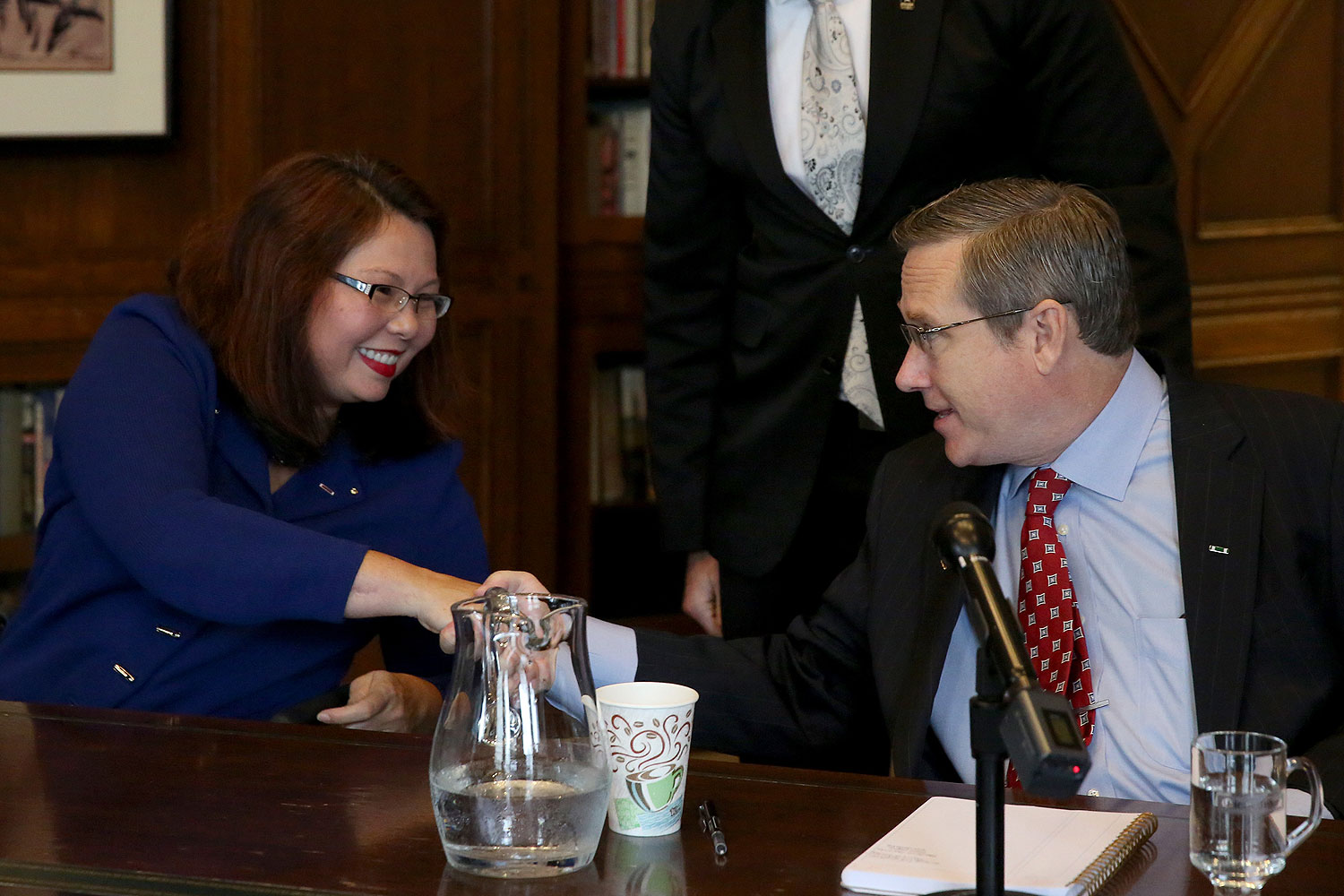Phew. What to say about Mark Kirk? Maybe what my colleague Carol Felsenthal wrote in May, when Kirk v. Duckworth was a close race in "what could be the most contentious—and most important—Senate race in the country":
In the run-up to the election, Kirk and Duckworth will be forced to debate. Political consultant Don Rose says he has heard that Kirk’s camp is worried about putting their guy on a stage. He calls Duckworth “not the brightest candle in the menorah,” but at least her “[debating] insufficiencies are not going to be palpable.” Kirk’s likely will be. See his recent penchant for blurting out odd remarks, such as calling Senator Lindsey Graham a “bro with no ho.” Top GOP donor Ron Gidwitz said last July that Kirk shouldn’t seek reelection. Gidwitz quickly retracted his comments, but his reservations were probably also shared by others.
Kirk's offhand hot-mic statement about Graham was just that—odd, and to the extent that it may have been mocking Graham's bachelorhood, if not defensible was hardly unusual. ("Bro with no ho" may have been the most memorable of the statements worrying GOP leaders, but when Greg Hinz talked to Gidwitz last year, it wasn't the most risky.) It was far from Kirk's disastrous interjection last night, a sarcastic, false lashing-out reminiscent of the top-of-the-ballot GOP candidate Kirk has been distancing himself from.
"I had forgotten that your parents came all the way from Thailand to serve George Washington," Kirk said, in response to Duckworth's quote, "My family has served this nation in uniform, going back to the Revolution." (Though Duckworth's mother is Chinese-Thai, her father's side traces its lineage back to colonial America.) Today, he issued an apology.
The backlash doesn't bode well for Kirk's campaign. His strength, particularly in a blue state, has been a relative moderation that dates back well before he found himself on the same ticket with Donald Trump. This year the former Democratic congresswoman Gabby Giffords endorsed Kirk for his record on gun control; a longtime supporter of civil unions, in 2010 Kirk was one of eight GOP senators to vote for the repeal of the military's don't-ask-don't-tell policy. When Jamey Dunn profiled the newly elected senator for Illinois Issues, she pointed to an effective record in saving the North Chicago Veteran's Affairs Medical Hospital—while arguing for cuts in broader military spending.
But his significance as a representative of his party overshadowed his weakness as a candidate. Kirk barely beat his 2010 opponent, Alexi Giannoulias, the young, one-term Illinois treasurer who was waging an uphill battle against the implosion of his family's bank and massive losses to the state's Bright Start college-saving plan he'd overseen as treasurer. Giannoulias was also far from the Democratic establishment's first choice, as Lisa Madigan, Tom Dart, Bill Daley, and Christopher Kennedy all appeared to be possible options, an ambivalence compounding Giannoulias's inexperience and baggage.
And yet Kirk beat Giannoulias by a mere 1.6 percent of the vote after a grindingly unpleasant campaign, in keeping with polling that generally gave Kirk a slight edge in the last couple months of the race. This time around, Kirk has been well behind Duckworth in almost every fall poll. His peak, in any poll, was 42 percent from a GOP-aligned pollster back in July. Even his internal polling earlier this month put him four points behind.
Will his apology, or any attempt to emphasize it in their final debate, make a difference? From the direction of the polling, it doesn't even seem making it in the first place will.



